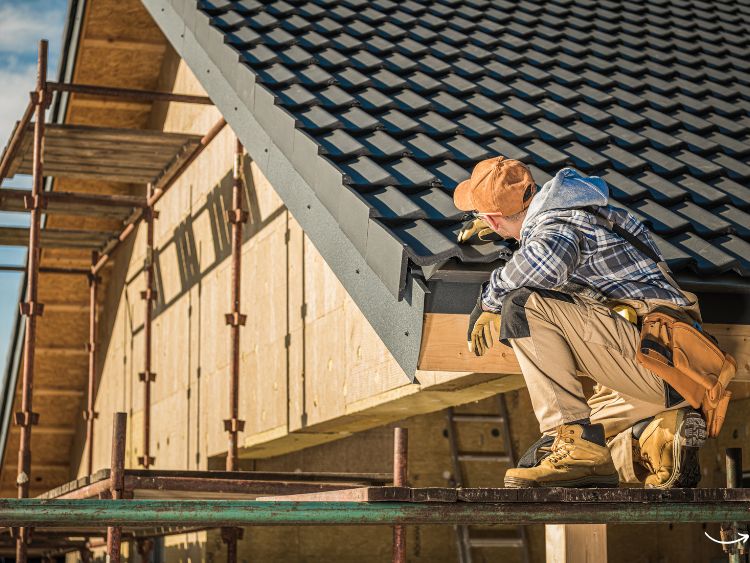When it comes to maintaining the integrity of your home, few elements are as critical as your roof. Situated in the Mile High City, where the weather can swing from blistering sunshine to snowstorms in a heartbeat, Denver homes require roofs that can stand up to an array of environmental challenges. In this comprehensive guide, we’ll dive into everything you need to know about Denver roof repair, from identifying signs of damage to selecting the right materials and professionals for the job.
Picture this: You’re cozying up with a good book on a snowy Denver evening when suddenly, you notice a water stain creeping across your ceiling. This could be a sign that your roof is failing to protect your home from the elements. Roof repair in Denver isn’t just about fixing leaks; it’s about ensuring your home remains a safe, comfortable haven year-round.
Understanding the nuances of roof repair in this unique climate is essential for any homeowner. Let’s break down what makes Denver roof repair a topic worth your attention.
Recognizing the Signs of Roof Damage
Before we delve into repair solutions, it’s crucial to recognize when your roof may need some TLC. Here are common indicators that your Denver roof might require repairs:
- Missing or Damaged Shingles: High winds and heavy snow can dislodge or damage shingles.
- Leaks or Water Damage: This is often visible in the form of water stains on your ceilings or walls.
- Sagging Roof: A sagging roof is a sign of structural issues that need immediate attention.
- Ice Dams: These occur when heat from your attic causes snow on the roof to melt and refreeze at the edge, potentially leading to water damage.
Choosing the Right Materials
In Denver’s variable climate, choosing the right roofing materials is not just a matter of aesthetics but of durability and efficiency. Here are some top materials suited for Denver roofs:
- Asphalt Shingles: Popular for their affordability and durability, especially in fluctuating temperatures.
- Metal Roofing: Excellent for snow shedding and can be incredibly durable.
- Tile Roofing: Clay and concrete tiles offer great longevity and resistance to fire.
- Slate Roofing: Offers a natural look with superior durability and a lifespan of up to 100 years, though it can be more expensive.
Finding the Right Professional
Hiring the right professional for your Denver roof repair is paramount. Here’s what you should consider:
- Local Experience: Look for contractors who have experience working in Denver and understand its unique climate challenges.
- Licenses and Insurance: Ensure they are licensed and insured to protect yourself against liability.
- References and Reviews: Check their references and online reviews to gauge their reputation and reliability.
- Warranty Offers: Opt for professionals who offer warranties on both materials and labor.
DIY vs. Professional Roof Repair
While some minor repairs might seem doable, roof repair often requires professional skills, especially in a city like Denver where weather conditions can complicate even the simplest tasks. Here’s a quick comparison:
- DIY: Suitable for minor repairs like replacing a few shingles or cleaning gutters.
- Professional: Necessary for structural issues, major leaks, or replacing an entire roof.
Preventative Maintenance Tips
Keeping your roof in top shape involves regular maintenance. Here are some tips to help you avoid major repairs down the line:
- Regular Inspections: Conduct inspections twice a year and after major storms.
- Clean Your Gutters: This prevents water buildup which can lead to roof damage.
- Trim Overhanging Branches: This reduces the risk of physical damage and keeps rodents away from your roof.
FAQs about Denver Roof Repair
Q1: How often should I replace my roof in Denver? A1: Typically, roofs last about 20-30 years, but this varies by material and environmental factors.
Q2: What’s the best season for roof repairs in Denver? A2: Late spring through early fall is ideal, as weather conditions are more predictable and conducive to roofing work.
Q3: Can I repair my roof myself if I’m handy? A3: For small repairs, yes, if you’re comfortable and knowledgeable. However, for extensive damage or structural issues, it’s best to contact a professional.
Summary
Denver roof repair is not just a matter of fixing leaks; it’s about ensuring the long-term protection of your home against the harsh local weather. From choosing the right materials to understanding when to call in the professionals, there’s a lot to consider. Remember, maintaining your roof not only protects your home but also enhances its value and efficiency. Don’t wait for the snow to melt or the next storm to tell you it’s time to look up and check on your roof. With the right approach, you can ensure that your roof stands strong against the elements, come rain, shine, or snow.




